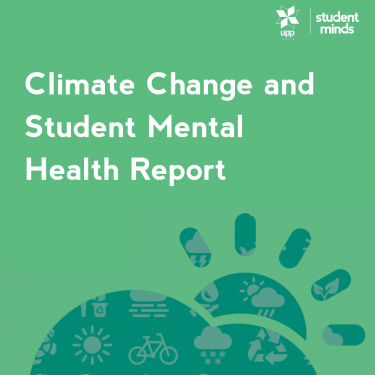Thoughts and reflections on the themes that emerged from the roundtables
Following the UPP Foundation’s collaboration with Student Minds on the joint “Student Living” project at Nottingham Trent University, both UPP and higher education think-tank, HEPI held high-level roundtables at Labour and Conservative party conferences in the autumn. Student mental health is undergoing intense research and debate so the events were timely and well attended. (Reports include UPP’s annual Student Experience Survey and HEPI’s latest report, The Invisible Problem? Improving Students’ Mental Health – both providing valuable insight and research on this issue).
The roundtables brought together industry leaders, policy-makers, academics and MPs discuss the findings and central messages of HEPI’s report, creating a forum for solutions and sharing good practices. I have outlined a number of areas which were key to discussions at both roundtables:
The importance of the transition period between school and university – The unique experience of transition from school to university can present a number of mental health challenges to students. In both HEPI’s report and Student Minds’ University Challenge report, multiple angles from which to reduce these challenges are considered – for example, allowing students to be simultaneously registered with a general practitioner (GP) at home and at university. This move would be beneficial for early intervention and prevention, targets in both the Future in Mind report and the Government’s 5-year plan for mental health.
Providing tutors and other support to assist first year students – The provision of specific tutors to support first year students in learning necessary study skills would go a long way to easing the aforementioned transition period. Additionally, a range of fresher activities targeted at those who are less inclined to drink alcohol to socialise without judgement would also help.
A holistic approach to well-being – The importance of universities taking a strategic approach to wellbeing could not be overstated, with the provision of support to those experiencing difficulties a top priority. Opportunities for students and staff to develop their own wellbeing were discussed too, in keeping with a whole-institution approach that listens to students as well as incorporating the experiences of a range of staff. You can read more about this at Universities UK.
Financially investing in student mental health – Central to discussions was the importance of intelligent funding decisions that acknowledge the real need to invest in mental health. Within universities, we know that disclosure rates are significantly disproportionate to prevalence rates which can have grave consequences; low and inaccurate disclosure rates not only lead to individuals not receiving the support they need, but they also contribute towards services being under-resourced as funding decisions are made on the basis of disclosure rates. Students should be supported to make informed choices regarding their decision to disclose, and universities should be mindful of the challenges this may present for students, and provide resources accordingly.
The role of accommodation – Building on the notion of a whole university approach, attendees recognised how vital a student’s experience in accommodation is to their wellbeing whilst at university. In appreciation of this, Student Minds, with thanks to funding from the UPP Foundation, has begun to deliver a training course to provide accommodation staff with the knowledge, confidence and skills to support students experiencing distress or mental health difficulties. Both the UPP Foundation and Student Minds will produce a sector guidance document to be published in Spring 2017 following the conclusion of the project.
We know that from a university perspective, it is worthwhile investing in mental health for a number of reasons; including, but not limited to, increased retention, improved student experience outcomes, and improved health of the community. It is vital, however, that we understand students’ experience of mental health difficulties at university, so that we can all do more to address the issue.








